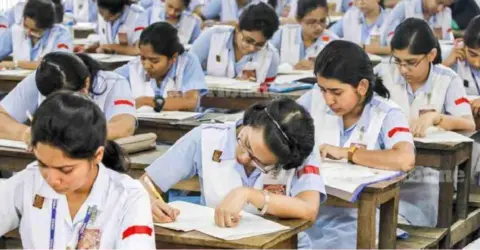China visibly emerges as forerunner in COVID-19 vaccine development
The Bangladesh The Bangladesh
Today

DHAKA, – China today announced an experimental COVID-19 vaccine it developed worked well on 90 percent of the people administered with the inoculation without any major side effect, amid an ongoing hectic global race for inoculation against coronavirus.
“More than 90 percent of people administered with the coronavirus shot on a 14-day interval have induced neutralizing antibodies two weeks after inoculation,” state-run Xinhua reported quoting the vaccine’s developer Sinovac Biotech Ltd, amid a hectic global vaccine race among drug makers.
The other major Chinese media outlets also carried the report saying the vaccine appeared capable of “eliciting an immune response from human trials without causing severe side effects”.
According to Xinhua, preliminary findings from phase I and II trials in China showed that 743 healthy people aged 18-59 either received shots on two schedules or a placebo.
Sinovac Biotech, however, said the company awaited more data from another group in the trial that received shots on a 28-day interval to be followed by the final phase III trial, to be carried out in Brazil.
Brazil currently appeared to be the world’s worst victim of the coronavirus pandemic, a situation that recently prompted the country’s heath authorities to allow experiential inoculation of Oxford vaccines by another vaccine frontrunner AstraZeneca Plc, a British drug maker.
The Latin American nation has recorded more fatalities than any country other than the United States, and its daily death toll is now the world’s highest.
Sinovac’s vaccine is among five Chinese experimental shots that have reached the final stage of human testing before getting approval for public use.
According to Reuters AstraZeneca overnight struck a deal with contract manufacturer Catalent Inc to help meet its global target of supplying two billion doses of its potential COVID-19 vaccine.
The development came a day after the company entered into an agreement with European governments to supply 400 million doses of the vaccine, starting by the end of 2020.
US drug maker Moderna, another forerunner in the vaccine race, meanwhile, said the efficacy data for its Covid-19 inoculate could be available by as soon as Thanksgiving if everything goes right.
“We could have efficacy data by Thanksgiving. This is the best time line,” Moderna’s Chief Executive Officer Stephane Bancel said in an interview with Bloomberg Television today.
Moderna’s next step would be to secure US Food and Drug Administration (FDA) approval while Bancel expected the regulator to “give us emergency use approval for people at very high risk” for an interim period ahead of its final approval following a more carefully review.
Bancel said Moderna was starting to think about how to “fairly price its vaccine” adding “what we need to make sure is that the vaccine is affordable.”
“But vaccines won’t be free. . . manufacturers, as you can appreciate, cannot give them away in the street. Business doesn’t work like that,” he said.
UN trade and development agency UNCTAD recently said poorer countries would need to boost local productions to ensure availability of prospective COVID-19 vaccines amid concerns over “who would and would not have access to the shot, if and when one (of the vaccines) is approved”.
“Once a vaccine for COVID-19 is available, the massive demand is likely to outstrip supply quickly,” UNCTAD’s director of investment and enterprise James Zhan said while opening an online seminar with World Health Organization (WHO) three weeks ago.
The UNCTAD statement said the UN agency teamed up with the WHO to seek ways to respond to the poorer economies need to access to the essential COVID-19 medicines including the prospective vaccines.
The UNCTAD statement came amid speculations and remarks by drug makers and health authorities in different developed countries on priorities of nations to have access to an prospective vaccine.
More than 140 world leaders and public figures, however, last month signed an open letter calling for global public health interests to be given priority over nationalism and corporate profits.
The call for a “people’s vaccine” followed a European Union-led event that a week earlier had secured nearly US$8billion from governments within and outside the bloc to help ensure universal and affordable access to COVID-19 medication.
The World Health Assembly on May 19 took a historic resolution co-sponsored by more than 130 countries calling for equitable access to vaccines and treatments against the virus.




